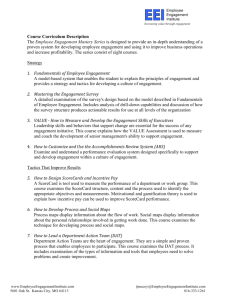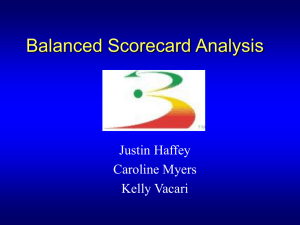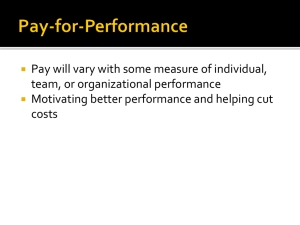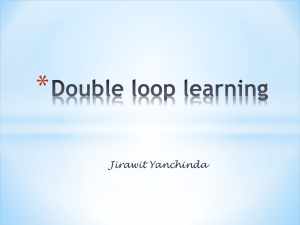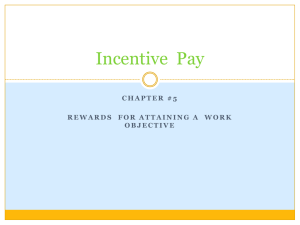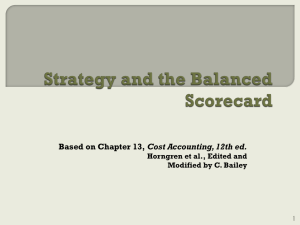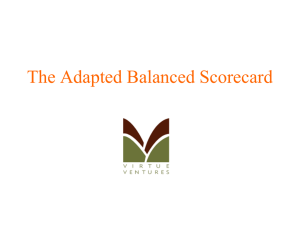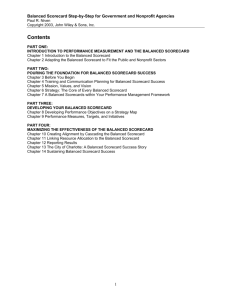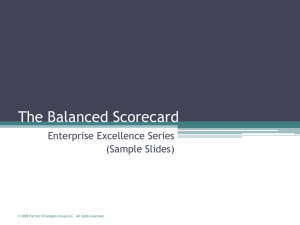Chapter 20 - Strategy, Balanced Scorecards, and Incentive Systems
advertisement
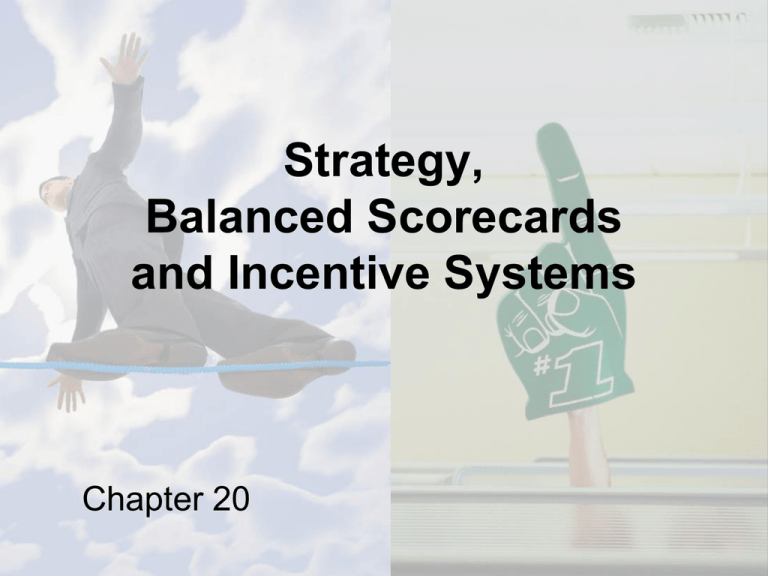
Strategy, Balanced Scorecards and Incentive Systems Chapter 20 Balanced scorecard Performance guidance and evaluation system Depicts the causal factors of success Balance between Financial and non-financial measures Leading and lagging indicators Long-term success and short-term results Balanced scorecard Four perspectives Financial Customer Internal processes Innovation and learning Inter-related Understanding the relationships leads to improved operations and financial position Balanced scorecard development Decide where you want to go Strategy Determine how to get there Critical success factors Activities Determine how to measure your progress Measurements Targets Balanced scorecard development Strategy Critical success factors Activities Measures Targets Strategy map Flowchart depicting the relationships between the four perspectives Balanced scorecard development Critical success factors What must you do well to succeed? What will cause you to fail if you do not do it well? Ex. On-time delivery for Fedex Activities More specific Must be performed to achieve CSFs Balanced scorecard development Measures Leading Provide guidance Lagging Provide feedback All measures are lagging, not all are leading Targets Challenging, yet attainable Incentive systems $ Motivate desired actions and performance $ Assumes $ Desired performance can be identified $ Performance can be measured $ Compensation can be based on performance $ Form of compensation is motivational $ Financial $ Non-financial Incentive systems $ Not as easy as it sounds $ What is the “right thing” to do? $ Efficiency vs. effectiveness $ The results of the “right thing” may not be apparent for years $ The “right thing” may conflict with personal interests Incentive systems $ How much of the “right thing” is enough? $ Challenging but not impossible targets $ Individual must have control over items that trigger the rewards $ Measurements must be observable, verifiable and appropriatte $ Not subject to manipulation $ Deepwater Horizons $ Cost-benefit must be considered Incentive systems $ Absolute or relative performance? $ Compared to target or to peers? $ Absolute may be possible for some, impossible for others $ Relative may reward inadequate performance $ Objective or subjective measures? $ Objective may not consider the whole picture $ Subjective may lead to confusion, resentment Incentive systems $ Current rewards? $ Immediate gratification $ Ignores future performance in favor of current results $ Deferred rewards? $ Less motivational $ Focuses on long-term performance $ May motivate managers to stay Incentive systems $ Form of compensation? $ All salary $ May increase or reduce risk-taking $ Stock $ Aligns performance with best interest of investors $ May result in stock price manipulation $ Bonuses (financial or non-financial) $ May “cap” performance once target is reached Incentive systems $ Ethical considerations $ Which stakeholders to consider $ May motivate enrichment of stockholders, management, at the expense of employees, community, environment, etc. $ Poorly designed incentive system may lead to dysfunctional behavior $ Manipulation for personal gain $ Short-term results overshadow long-term sustainability

